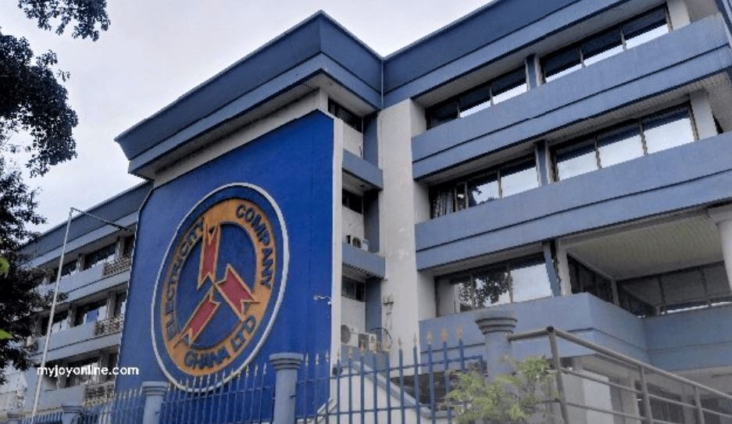The Ranking Member of the Mines and Energy Committee in Parliament, John Jinapor, says that there is no need to sell the Electricity Company of Ghana (ECG).
This is despite reports suggesting that the company may be on the brink of bankruptcy due to severe financial challenges.
According to him, the main issue facing ECG is its billing and collection system, and a road map already exists which, if properly implemented, could save the company from its financial woes.
Mr Jinapor explained that during the National Democratic Congress (NDC) administration, former President John Mahama under the Millennium Challenge Corporation Agreement, secured $500 million to invest in the energy sector.
He said after visits to various countries to learn best practices, it was concluded that selling ECG was not necessary.
However, he stated that certain individuals within the ruling New Patriotic Party (NPP) intervened, undermining the process, and said the documentation was fraudulent.
“So we don’t need to reinvent the wheel, the road map is there, what we need to do is to take away the unnecessary political interference and the attempt by some people to make personal gains on the back of this concession.
“If we do it in a transparent manner, in a fair manner, and put in place the right mechanism, we will turn ECG around,” he said on Top Story on Wednesday, September 18.
His comments follow a notice from the Public Utilities Regulatory Commission (PURC), which warned that ECG may be on the verge of bankruptcy due to severe financial difficulties.
In a letter addressed to the Presidency, the Ministers of Energy and Finance, and other key stakeholders, PURC’s Executive Secretary, Dr Ismael Ackah, highlighted the crisis, which is also affecting the Volta River Authority (VRA), Ghana Grid Company (GRIDCo), and the Bui Power Authority.
He noted that these challenges have resulted in delays in salary payments and difficulties in covering administrative costs, signaling the need for urgent intervention.
Despite efforts to improve cash collection through digital and metering programs, as well as a 75% increase in tariffs since September 2022, ECG’s financial instability continues.
On the back of this, Mr Jinapor agreed with the PURC’s assessment, stating that ECG’s financial difficulties confirm there is excessive political interference in the management of the energy sector.
The Ranking Member on the Mines Committee argued that ECG should not be entirely privatised, but that Ghanaian private entrepreneurs should be involved in collecting payments for the company.
"The problem is corruption and a few cabal who always want to benefit from the Energy Sector, that is the problem,” Mr Jinapor added.
Latest Stories
-
Entrepreneurship is about survival in Africa – McDan
8 minutes -
GRA postpones implementation of GH₵1 fuel levy
16 minutes -
I fast anytime I have a church performance – Jeffrey Nortey
27 minutes -
Build strong character – Sam Jonah tells youth
30 minutes -
Ace Ankomah advocates establishment of Independent Natural Resources Commission
37 minutes -
Ivorian defender Odilon Kossounou joins All Star Festival 2025 as special guest
44 minutes -
Kenyan dies in custody after arrest for online post
2 hours -
Today’s front pages: Monday, June 9, 2025
2 hours -
Satellite installer remanded in custody for defiling 3 girls
3 hours -
Kennedy Agyapong under fire for waging ‘religious’ campaign against Bawumia
3 hours -
How Ghana lost over GH¢2bn swapping gold for fuel
4 hours -
Zoomlion Ghana Ltd and Zanzibar partner on waste management, sustainability
4 hours -
‘Our indigenous cocoa buyers may go extinct’ – COCOBOD CEO warns of LBC collapse
5 hours -
Cocobod pleads for 3% of banks’ reserves to rescue local LBCs
5 hours -
There was no syndicated loan in 2024/25 so no seed fund for LBCs – Randy Abbey discloses
6 hours

